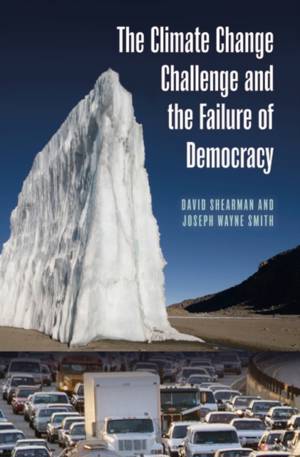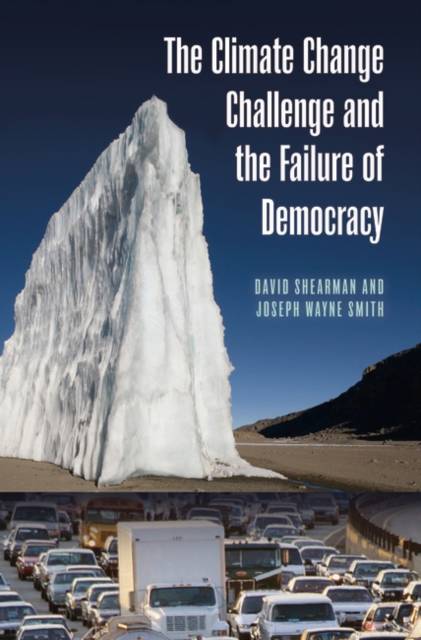
- Retrait gratuit dans votre magasin Club
- 7.000.000 titres dans notre catalogue
- Payer en toute sécurité
- Toujours un magasin près de chez vous
- Retrait gratuit dans votre magasin Club
- 7.000.000 titres dans notre catalogue
- Payer en toute sécurité
- Toujours un magasin près de chez vous
110,45 €
+ 220 points
Description
This provocative book presents compelling evidence that the fundamental problem behind environmental destruction--and climate change in particular--is the operation of liberal democracy.
Climate change threatens the future of civilization, but humanity is impotent in effecting solutions. Even in those nations with a commitment to reduce greenhouse emissions, they continue to rise. This failure mirrors those in many other spheres that deplete the fish of the sea, erode fertile land, destroy native forests, pollute rivers and streams, and utilize the world's natural resources beyond their replacement rate. In this provocative book, Shearman and Smith present evidence that the fundamental problem causing environmental destruction--and climate change in particular--is the operation of liberal democracy. Its flaws and contradictions bestow upon government--and its institutions, laws, and the markets and corporations that provide its sustenance--an inability to make decisions that could provide a sustainable society. Having argued that democracy has failed humanity, the authors go even further and demonstrate that this failure can easily lead to authoritarianism without our even noticing. Even more provocatively, they assert that there is merit in preparing for this eventuality if we want to survive climate change. They are not suggesting that existing authoritarian regimes are more successful in mitigating greenhouse emissions, for to be successful economically they have adopted the market system with alacrity. Nevertheless, the authors conclude that an authoritarian form of government is necessary, but this will be governance by experts and not by those who seek power. There are in existence highly successful authoritarian structures--for example, in medicine and in corporate empires--that are capable of implementing urgent decisions impossible under liberal democracy. Society is verging on a philosophical choice between liberty or life. But there is a third way between democracy and authoritarianism that the authors leave for the final chapter. Having brought the reader to the realization that in order to halt or even slow the disastrous process of climate change we must choose between liberal democracy and a form of authoritarian government by experts, the authors offer up a radical reform of democracy that would entail the painful choice of curtailing our worldwide reliance on growth economies, along with various legal and fiscal reforms. Unpalatable as this choice may be, they argue for the adoption of this fundamental reform of democracy over the journey to authoritarianism.Spécifications
Parties prenantes
- Auteur(s) :
- Editeur:
Contenu
- Nombre de pages :
- 208
- Langue:
- Anglais
- Collection :
Caractéristiques
- EAN:
- 9780313345043
- Date de parution :
- 01-08-07
- Format:
- Livre relié
- Format numérique:
- Genaaid
- Dimensions :
- 162 mm x 243 mm
- Poids :
- 471 g







